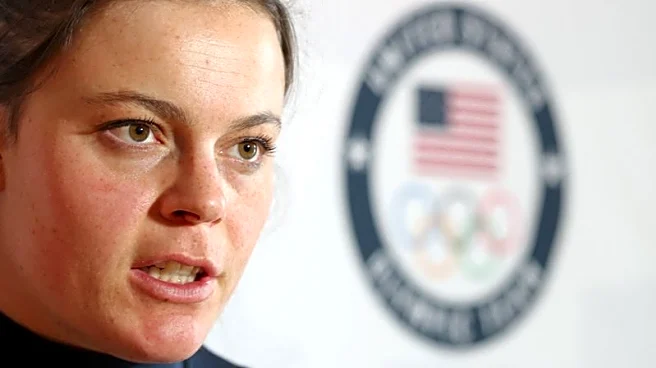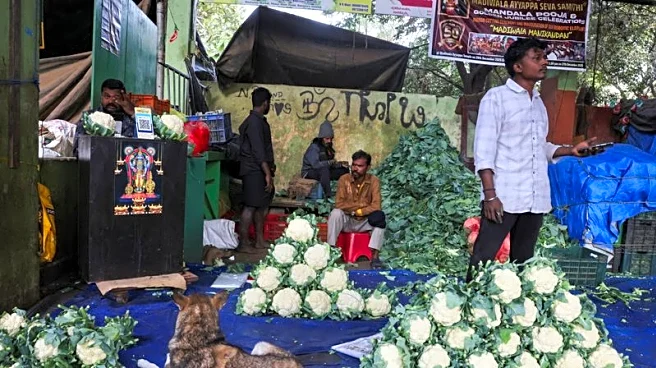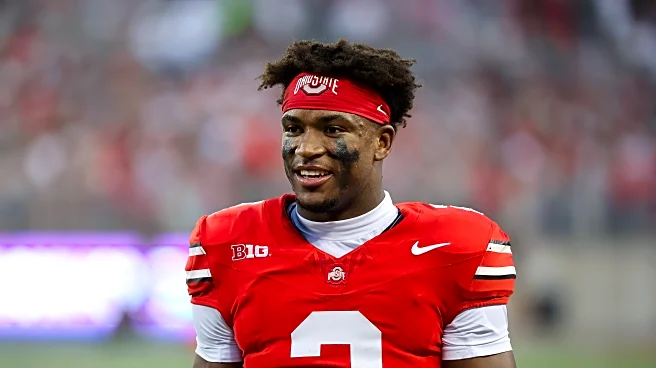What's Happening?
Minnesota Lynx forward Napheesa Collier has canceled a planned meeting with WNBA Commissioner Cathy Engelbert, according to a source familiar with the situation. The meeting was intended to address Collier's recent criticisms of the league's leadership, which she described as 'the worst leadership in the world' and accused the commissioner of lacking accountability. The cancellation follows Engelbert's comments disputing Collier's claims about a private conversation, particularly regarding Caitlin Clark's financial impact on the league. Engelbert emphasized Clark's positive influence and the need to improve player relations. The league is currently negotiating a new collective bargaining agreement as the existing one expires soon.
Why It's Important?
The cancellation of the meeting highlights ongoing tensions between WNBA players and league leadership, potentially affecting negotiations for the new collective bargaining agreement. Collier's public criticism underscores player dissatisfaction, which could influence the terms of the agreement and impact league operations. The situation also reflects broader challenges in professional sports regarding player representation and management accountability. As the league seeks to expand its fan base and financial stability, addressing player concerns is crucial for maintaining a positive image and ensuring long-term success.
What's Next?
With the collective bargaining agreement set to expire at the end of the month, the league and players' union must navigate these tensions to reach a new deal. The outcome of these negotiations could set precedents for player-league relations and influence future agreements. Stakeholders, including team owners and sponsors, will be closely monitoring developments, as the league's ability to resolve internal conflicts may affect its marketability and growth. The situation may prompt further discussions on leadership practices and player engagement strategies within the WNBA.
Beyond the Headlines
The dispute between Collier and Engelbert raises questions about the ethical responsibilities of sports leadership in addressing player grievances. It also highlights the cultural dynamics within women's sports, where players often advocate for greater recognition and support. The situation could lead to long-term shifts in how the league approaches player relations and governance, potentially influencing other sports organizations facing similar challenges.










